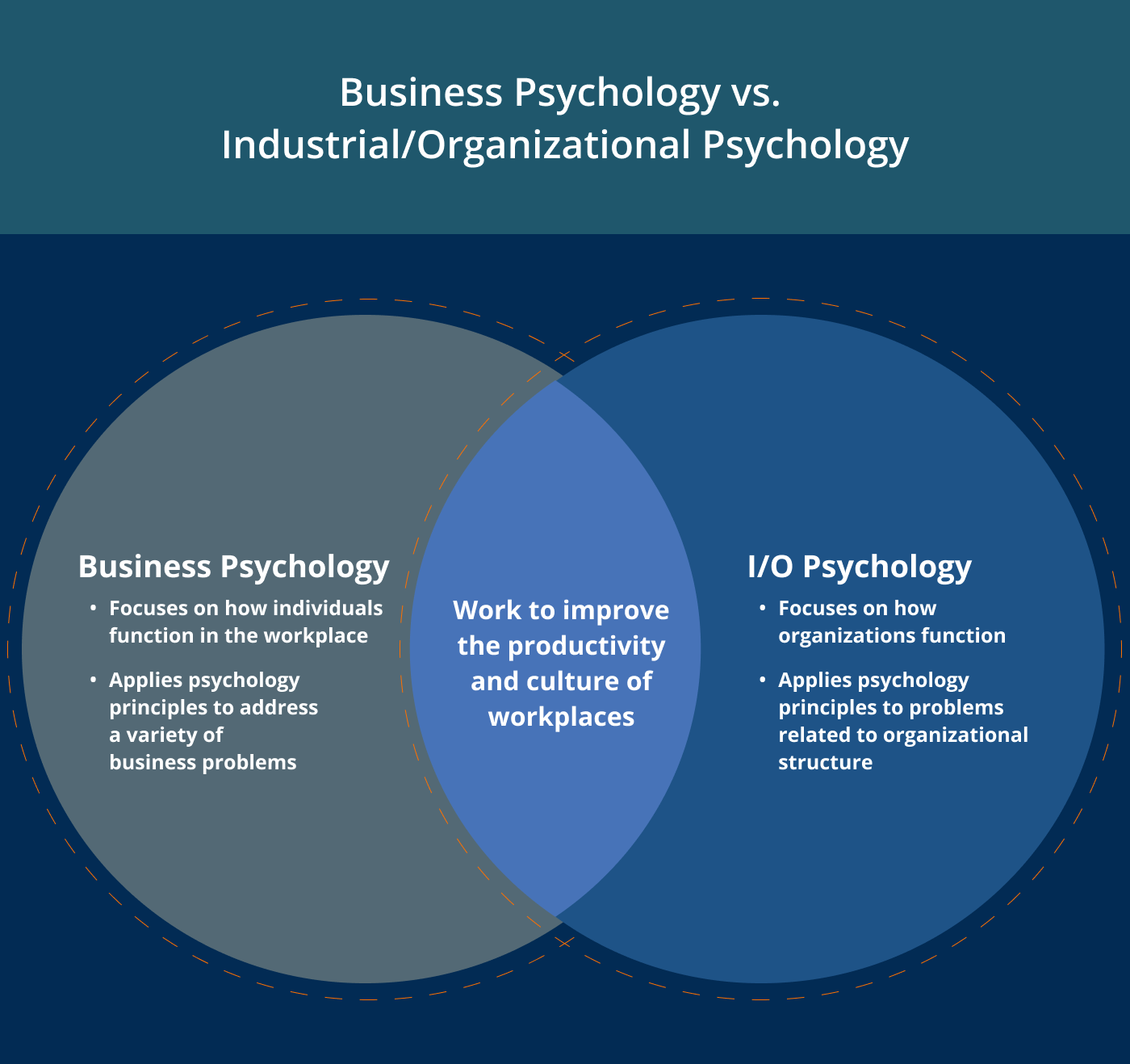Request Information
We're Sorry
There was an unexpected error with the form (your web browser was unable to retrieve some required data from our servers). This kind of error may occur if you have temporarily lost your internet connection. If you're able to verify that your internet connection is stable and the error persists, the Franklin University Help Desk is available to assist you at helpdesk@franklin.edu, 614.947.6682 (local), or 1.866.435.7006 (toll free).
Just a moment while we process your submission.

What Can I Do with a Business Psychology Degree?
Success in business depends on identifying and filling human needs – and to do that effectively, you need to understand psychology. From predicting consumers’ behavior and motivating them to make certain decisions to building high-functioning organizations, companies of all sizes can benefit from applying psychology knowledge and principles to business.
As companies work to differentiate themselves in a competitive economic environment, the market for professionals who understand how to drive growth and success through psychology is growing. According to Lightcast Analytics, job openings related to business psychology will increase by 19% by 2032. So what do business psychologists do, and how can you acquire these in-demand skills?
.png)
What matters most when choosing a master’s program? Compare features, benefits and cost to find the right school for you.
What Is Business Psychology?
“Business psychology combines advanced business practices with the study of human behavior to improve the productivity, efficiency and culture of workplaces,” says Dr. Jeffrey Ferezan, a faculty member in Franklin University’s M.S. in Business Psychology program.
While business psychology is related to industrial-organizational psychology, the two approach the intersection of work and psychology from different angles.
“Industrial-organizational psychology uses a top-down approach that starts with the organization,” Ferezan says, “while business psychology uses a bottom-up approach that starts with the individual and applies psychological practices to big picture areas.”
Business psychology also looks beyond organizational behavior – the typical scope of industrial-organizational psychology – to explore the qualitative and human aspects of business disciplines like marketing, economics, finance, management and human resources.

What Business Psychology Degrees Are Available?
You can start your business psychology education as an undergraduate or graduate student. However, since few programs in the United States specifically focus on business psychology, you may need to pursue adjacent programs and choose the most relevant courses yourself.
At the undergraduate level, options vary by school. You might choose to major in organizational psychology, earn a bachelor’s in psychology and take courses in organizational psychology, or pursue a business degree focusing on organizational psychology.
Master’s programs are often more narrowly focused. Several universities, including Franklin, offer a master’s degree in business psychology. You might also choose a master’s in a related field, like industrial-organizational psychology, or earn an MBA with a concentration in business psychology.
When selecting a degree program, says Ferezan, “the learner needs to understand who and where they wish to impact.”
Before you start applying, spend time considering your career goals. Don’t just explore job titles but also the types of projects and responsibilities you find fulfilling. It can be helpful to reach out to professionals in roles that interest you during this process. Learn about their journeys and ask which skills are most important to their work, then use that information to inform your decision-making.
What Do You Learn in a Business Psychology Master’s?
Business psychology master’s programs generally have hybrid curricula that include coursework around psychology, neuroscience and business. Psychology and neuroscience content focuses on areas like motivation, small group behavior and individual assessment. You’ll learn what makes individuals and teams tick and how to use that knowledge to keep employees engaged and productive.
Students in Franklin’s business psychology master’s explore business topics you might expect to find in an MBA program, such as marketing and human resources. However, business psychology programs take a non-traditional approach. By integrating emerging fields such as neurofinance and neuromarketing, which measures consumer response to marketing stimuli to better understand why and how they make decisions, you’ll learn to unlock performance and revenue in new and exciting ways.
As Dr. Ferezan explains, undertaking a business psychology master’s degree also helps students build essential skills including critical thinking, communication and presentation – but the learning doesn’t stop there. At Franklin, the business psychology program includes a number of personal workstyle and leadership assessments. Hands-on support from faculty helps students lean into their strengths and approach their challenges in new ways.
“You’ll learn things you didn’t know about yourself and create a development plan to become better,” Ferezan says.
Who Can Earn a Business Psychology Master’s?
To enroll in a business psychology master’s program, you’ll need an undergraduate degree in any subject. Specific entry requirements vary by school and may include standardized tests, a minimum GPA and letters of recommendation.
Franklin’s program is appropriate for learners at any level who wish to deepen their skillset and acquire new tools to succeed in business. It does not require test scores or prior study of psychology.
“Many students entering this program have significant professional experience,” says Ferezan. “You don’t need a background in psychology, just a passion for the subject.”
What Do Business Psychologists Do?
Whether you’re passionate about consumer goods or sustainability, you can find a way to apply business psychology. This degree adds value to a wide range of professional and managerial roles. Graduates work in corporations of all sizes, government agencies, nonprofits, education institutions and unions. Others are self-employed as organizational consultants or executive coaches.
A sampling of job titles aligned with business psychology includes the following:
- Industrial-organizational psychologist
- Human factors specialist
- Human resources manager
- Market research analyst
- Organizational consultant
- Marketing manager
- Management consultant
- Training and development manager
- Executive leadership coach
As this list demonstrates, you shouldn’t limit your job search to positions with “psychologist” in the job title. In fact, most professionals apply business psychology to other roles.
Set Yourself Apart with a Business Psychology Degree
Are you looking for a business career that makes a difference?
With a business psychology degree, you can use your unique skill set to refine how organizations operate – not just to drive profit but also to improve employees’ work lives.
Franklin’s M.S. in Business Psychology will teach you to make businesses and people better by applying the latest in neuroscience and psychology research. You’ll learn from practitioners in the field using real-world examples, with all the hands-on support you need to make the most of your degree. Complete our flexible online program in as few as 14 months without missing a beat in your career.
Find out more about Franklin’s unmatched Master’s in Business Psychology program.





